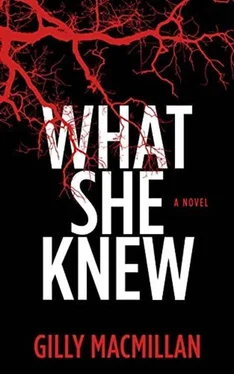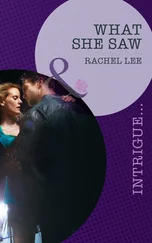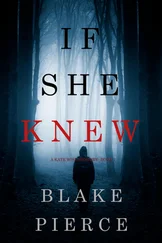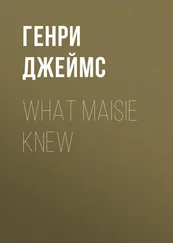She was immaculate in police uniform. Wildly curly grey hair and a pair of wire-rimmed glasses that sat at the bottom of her nose, under sharp eyes, gave her the look of a bluestocking academic.
‘We are also requesting that the public do not organise searches of their own,’ she said. ‘Though we thank the members of the community who are offering their help.’
A helpline number and the photograph of Ben that I’d given the police flashed up, filling the screen.
It’s the strangest thing in the world to find that the story you are watching on TV is your own, to realise that you have entrusted a stranger with finding your child, and to then have to accept that you are as disconnected as anybody else watching, that you are essentially impotent. When Ben’s face had gone from the screen, Laura turned the TV off. I wanted to howl with sorrow, or to rage, but I did neither, because my hands shook and my stomach was turning, threatening to disgorge the tea I’d been sipping, the tiny morsels of toast I’d forced myself to swallow at the behest of my sister.
The call about the press conference came later that evening. The police wanted me to appear in front of the cameras the next morning, to read out a statement appealing for help in finding Ben. They would send a car for me.
‘I can’t leave the house,’ I said. ‘What if he comes home?’
Laura said, ‘I’ll stay here. You’ve got to go. I’ll stay here.’
‘Should I stay?’ said Nicky. ‘I could stay.’
Both of them looked at me, wanting me to decide.
‘Nicky should come with me,’ I said.
Laura was my best friend but Nicky was Ben’s aunt, our only family.
‘She’s right,’ Laura said. ‘You should be there.’ She looked at me. ‘And it can only be good if you appear on TV. People will care more about Ben. They really will. I’ll come over in the morning before you leave, and I won’t leave the house, not even for a minute. Not until you’re back. I promise.’
Laura told my sister that she should choose an outfit for me to wear, that I should be as presentable as possible. She said it was important, even if it felt trivial to think about it at a time like this. She looked closely at the gash on my forehead, and I winced when she touched the edge of it.
‘I don’t think you can put make-up on it, if that’s what you’re thinking,’ Nicky said. ‘It’s too raw.’
Laura peered at it. I could see her eyes following its trajectory across my forehead. ‘Let’s see how it looks in the morning,’ she said.
‘Could we cover it with a dressing?’ Nicky asked.
‘No. A dressing will look ugly on TV, and it’ll obscure her face. Worst case, we leave it as it is. It’s not that noticeable.’
We all knew that wasn’t true.
In the kitchen, after Laura had gone, with a promise to return first thing in the morning, Nicky said, ‘Do you trust her? I’m not sure she should be here on her own.’
‘What do you mean?’
‘She’s one of them.’ She gestured towards the front door, the pack of journalists lingering outside, whose voices we’d heard rising and swelling throughout the evening, breaking into laughter now and then.
‘She’s not that kind of journalist,’ I said. ‘She writes for gossip magazines, about make-up. It’s fluff, bullshit. It’s not news.’
‘They’re all the same breed.’
‘She’s my friend. My best friend.’
‘Fine. If you trust her then that’s fine, isn’t it?’
‘I do trust her. I can’t believe you’d say such a thing.’
‘Sorry.’
The kettle was noisily reaching boiling point. Nicky leaned against the counter and lapsed into a thousand-yard stare, but I knew her and I knew that behind it her mind was turning. For the first time, it occurred to me to ask about her family.
‘How are the girls?’
Her attention snapped back to me, a funny look. Guilt, perhaps, swiftly disguised, because she had four daughters safe at home while I was missing my only child.
‘Will you tell them?’ I asked.
‘I think it’ll be impossible to avoid. With it on the TV, and in all the papers.’
‘Do they need you to be with them? Don’t you need to go home?’
‘No,’ she said it firmly. ‘My place is with you right now. They’ll be fine.’ She closed the matter by turning her back on me to make tea with concise, measured movements.
After we went to bed, I couldn’t sleep. All night I kept vigil in Ben’s room. I left the curtains open, and lay in his bed, letting my eyes run over the contours of his belongings. Books, toys and other stuff, collected and arranged by Ben on his shelves, had the stillness of museum exhibits. I sat up, wrapped his duvet around me, and stared into the shadows in the corners of his room, and then moved my gaze outside.
I watched a fox leap the fence into my neighbour’s garden and then slink around, nose to the ground, before finding something it could eat and devouring it, gulping it down in a way that was fast and primitive and ugly. When it was done, it ran its tongue over its chops, savouring, before disappearing into the night.
I felt the various textures of my fear: shivery, visceral, tight, pounding, in turn or all at once. I only fell asleep once, in the small hours, and woke to a sensation of being choked, gasping for air, pushing bedding away from me as if it were hostile, or venomous, and then finding my sister standing in the room with fear on her face saying, ‘Rachel, are you OK? Rachel!’
After that we sat together until it was morning, as if it was just the two of us left in the world.
Addendum to DI James Clemo’s report for Dr Francesca Manelli.
Transcript recorded by Dr Francesca Manelli.
DI James Clemo and Dr Francesca Manelli in attendance.
Notes to indicate observations on DI Clemo’s state of mind or behaviour, where his remarks alone do not convey this, are in italics.
FM: What I’d like to start with today is a discussion of your relationship with DC Zhang.
JC: There’s not much to say.
FM: You were seeing each other when the Benedict Finch case started?
JC: Yes.
FM: How long had your relationship been going on?
JC: About four months.
FM: And were things going well?
JC: They were, yes. I thought they were.
FM: But you kept the relationship secret from work?
JC: I didn’t want gossip.
FM: Were you embarrassed about the relationship?
JC: No! God no. Anyone would have been proud to go out with Emma.
FM: Why’s that?
JC: She’s very clever, and very gorgeous. Funny, too when you got to know her.
FM: She sounds lovely.
JC: She was even better than that though; I’m not describing her very well. She was different from other girls I’d been out with.
FM: How was she different?
JC: She was just… she wasn’t dull like them. It’s like she’d lived a different kind of life, and she wasn’t afraid to know stuff, and she was always wanting to learn new things, to be a better version of herself. When she was a kid she was an athletics star, and she got top grades, and she’d kept that sense of purpose about her. She talked about life as if it was a given that it was interesting or exciting, not about mortgages or package holidays or where she was going out on Friday night. I don’t want to make her sound manic, obsessed with achievement or anything, because she wasn’t like that, because she was calm with it all. It’s just that she was always striving, you know, to make life better than it was.
FM: So she had high expectations?
JC: Yes, but in a good way. It was refreshing. She was refreshing. That’s the word I’m looking for. She had a different outlook and it was infectious, if I’m honest. I felt like it brought me out of myself, if that makes sense.
Читать дальше












